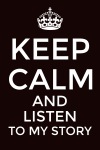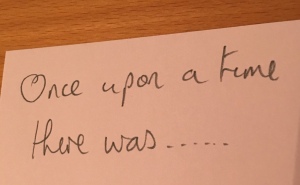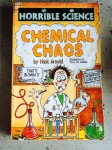This is blog to put storytelling back into the heart of outstanding work in school. However you wrap it up much of an attention grabbing, motivating, challenging moment is – a story.
I can see it being a challenge in Maths but beyond that storytelling should be at the heart of great lessons, great assemblies and purposeful conversations with pupils and parents. If I am honest it’s what I will miss most when I eventually retire – telling a story and engaging learners to start their journey of Education. In fact for some may even evoke memories ( hopefully good ones) of storytelling times.
And a big thank you for a tweet from Gareth Williams (@gwill72)
“Pratchett, Stewart and Cohen suggested our genus should be Pan Narrans, the Storytelling Ape
Why?
- Stories hook pupils
- Stores fascinate pupils
- Stories stimulate curiosity
- Stories grab attention
- Stories motivate
- Stories allow the teacher to light up the classroom
Stories underline challenging learning, introduce it, develop it, help with recall and stories can be short and brief and pointed, they generate curiosity
In the classroom
time for learning is precious, literally every minute is important so as a teacher you need to justify the storytelling. I think there are plenty of reasons (above) but a few minutes of a well told anecdote and gripping story grab attention, fascinate, drive up curiosity and frankly are at the heart of learning. I do apologise a little as I think my subject (Chemistry) has the very best stories! In fact since 1992 I have taught my lessons by stories. Those are highlighted separately but as part of my plenary, part of my conclusions or as the meaty part of the lesson are *stories* to help understand, build knowledge, motivate and synthesise. I want to say a very daring thing – we sort of know what makes a bad lesson turn out bad, we know what needs doing to turn the learning around from inadequate to satisfactory ( hey I know Ofsted use RI but this isn’t ofsted speak this is classroom speak). What I am not sure about is making good lessons become outstanding but I reckon decent storytelling sits at the heart. Not only grabbing attention, but hooks to help recall of knowledge and also to challenge pupils – if X really thought that back in the 21st Century – who is doing that now. If Y discovered that, then so might I. If this solved a problem of drug development, then I might be able to do that. To me it adds a moral purpose too.
 Anecdote > Chlorine- saved incalculable numbers of lives by purification of water; ridding us of cholera and other diseases but misused in WW1 cost many lives too. We have got a story worth telling and with some Wilfrid Owen poetry brings us to a position where pupils listen all the more carefully to my lesson on Chlorine “it’s properties and reactions” – and remember it and may even challenge them into their future career directions, or choices.
Anecdote > Chlorine- saved incalculable numbers of lives by purification of water; ridding us of cholera and other diseases but misused in WW1 cost many lives too. We have got a story worth telling and with some Wilfrid Owen poetry brings us to a position where pupils listen all the more carefully to my lesson on Chlorine “it’s properties and reactions” – and remember it and may even challenge them into their future career directions, or choices.
Assemblies
I guess this is more obviously where a good story tells the message. Elsewhere I have written of the disproportionate effort necessary for good assemblies but at their heart is brilliant storytelling
Here are two examples:
1 During the Football World Cup I saw an interview with Gary Linekar saying he practiced penalty taking 50 -60 times after yes after everyone completed training. So while others tired and exhausted went for their showers, he stayed out maybe on his own, and the secret = practice = hard work. Check the stats on his penalty taking too! Wow I thought we can help children understand greatness cannot be achieved overnight but needs hard work and with hard work -who knows?
2 I once read of a Uruguayan rugby team who were lost in the Andes and had to consider eating the flesh of the dead to survive. “Alive” is a great story full of drama and tears, with a continuous unfolding of the. Story from the 70’s to date. This became the basis for one of my very favourite post 16 assemblies ” when is it right to do something which is wrong?”
Pupils
As a long serving teachers, SLT ( and many others) have all seen pupils “turn it round”. Pupils that are a bit like the pupil sat in front of you: yes the upset pupil, the bullied pupil, the bullying pupil, the “I’m not sure any more about A Levels” pupil. The poorly attending pupil, the one with special needs not being addressed, the one with stuff happening at home. So have a story to uplift, to bring hope, to challenge and to help. It’s not the main discourse with the pupil that’s much deeper but the view that there was someone like you who….got through, made good, turned it around, found an answer….might just be important to this pupil.
Parents
The same is true of discussions with parents. This is more challenging but knowing your parents and their story it might help to have an anecdote and a story to hand. I try never to conclude a fixed term exclusion meeting without sparing a separate word for the parents. I don’t try and engineer a story but I do need to help them – I might need to challenge them, to tell them a home truth, to put something up to date before them and a story might help.
Cover
I’ve never been much good at cover lessons. I feel bad for the children that their teacher is missing and so I always try and teach them, especially as a senior leader I think it is really my duty and only rarely with other stuff pressing down have I said “sit down, shut up and do this work so that I can get on”. Of course I try and do the tasks set by any absent staff where that has been left, but peppering with stories can really help bring a lesson to life which might otherwise be dull.
Personal Stories? Maybe
Can we share personal anecdotes, stories from our own lives or families? Well I guess this is controversial and its up to colleagues to be comfortable but the occasional story can help with engagement. I have told of stuff that has happened relevant to the lesson.Perhaps mostly about incidents in my own journey with Chemistry – where I inadvertently made a few crystals of explosive Nitrogen Triodide, or where I met a Nobel winner and nearly embarrassed myself.
So here are some headings I drive around my brain finding for Chemistry Stories and watch for a post with some of these in more detail.
- Origins of chemistry
- History of chemistry
- The story of an element
- Characters in chemistry
- The obviously famous chemists
- The less well known chemists
- The bad chemists
- The controversial chemists
- Preset frontier chemists
- Events in chemistry
- Discoveries in chemistry
- Inventions in chemistry
- New products from chemistry
- Changed ideas in chemistry
- Prize winning chemists
- Daft chemists
Some Questions
Q1 If you are a teacher does your subject have great stories? And do those stories bring a magical enchantment to your pupils in your lessons?
Q2 If you are not a teacher, do you remember lessons, or school or teachers and is any of that memory from stories or anecdotes ?
If you work in a church school
Proverbs 1:6. –for understanding proverbs and parables (stories) the sayings and riddles of the wise
Matthew 13:13 This is why I speak to them in parables: ‘ though seeing, they do not see; though hearing, they do not hear or understand.
Genesis 39:17 Then she told him this story

Jon, let me start by admitting…..I’m a bit of a story-sceptic. Now, of course, I’m not a teacher, and so it is entirely possible that I don’t know what I’m talking about. Let’s put that to one side, for the time being. I’m a Chemist. When I look back across the aeons since I was in full time education, I can’t recall one story used to help the learning process along. I can remember one analogy, used at A-level to illustrate quantum levels. It’s like a lift in a department store (Bodgers, it was called), which can, obviously only stop at defined stories (floor 1, Haberdashery).
[it will be interesting if me using this example helps you remember my comment]
I digress. And that’s the problem I have with introducing stories into lessons. Digression. Is it really necessary to do so? I agree that narrative and story telling are powerful….in ordinary life contexts. But school isn’t ordinary life. It’s special.
And, don’t lessons have their own narrative (if they have been constructed right), a flow of logic, and connecting threads to previous lessons, and to future lessons. Easily done in Chemistry, I’d have thought. Does the teacher, caught up in the beauty and delight of the narrative of the subject, communicate that drive to find out to the students? And doesn’t that subject logic help the students to construct the framework of knowledge that they need to understand and retain the subject?
Or am I barking up the wrong story-tree?
LikeLiked by 1 person
Well I wasn’t expecting that – which is good, you can make me think all over again. Stories do bring us hooks and contexts and applications to learn knowledge, help understanding and especially challenge application and synthesis -but we have a context driven Chemistry specification. Much response has been positive and I realised you were not a teacher in classroom which was why I was so interested in your view. Perhaps when I get my Chemi stories out you might revisit this for me.
I do agree the analogies are helpful.
The alternative explanations for our differing views on storytelling is simply that I didn’t really explain what exactly I meant by a Chemical Story. Watch this space and I’ll be back – but not for a while
Thanks for comment -interesting and challenging
LikeLike
Reblogged this on The Echo Chamber.
LikeLike
Hi John, thanks for this, I find the subject of stories really fascinating. (I often use it as a form for blogging too, see https://suecowley.wordpress.com/2015/08/06/once-upon-a-time/ and https://suecowley.wordpress.com/2015/08/22/era-uma-vez/ for a couple of examples.)
For me, there are two key facets to stories and learning. Firstly that they link us to our past, and to our culture/society. The stories that we tell have lots of layers of meaning within them, and they illuminate things that are not easily explained in a more logical way. The other facet I love is the way that you can place yourself in a story (as you refer to in your blog) and in so doing you can understand your own motivations and behaviours a bit better. I use stories a lot when I’m working with teachers, to help them understand their own behaviour better (for instance, I use one about speeding to illustrate why sanctions and rules both do and don’t work).
Obviously in my subject (English) we are surrounded by stories all the time, but I can see their application in many other subjects. I hadn’t thought of chemistry in this way before (thank you) but history is obviously full of them as well. 🙂
LikeLike
That’s a generous and helpful comment Sue, thank you for taking the trouble to comment. My poll only small 85 voters had a 95% agree but there is a comment above challenging us all – I like that about Twitter if we embrace it sensibly.
My staff, my pupils, my parents and my family would probably tell you how import st storytelling was to me – and politely ignore the occasional repetition or boredom for reasons you suggest
LikeLiked by 1 person